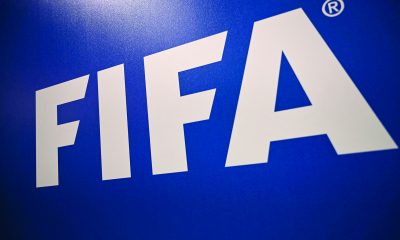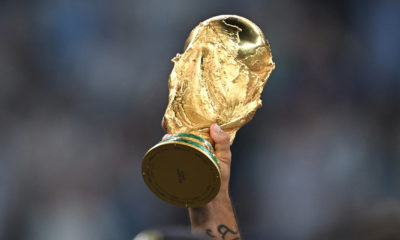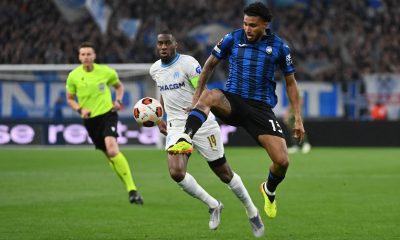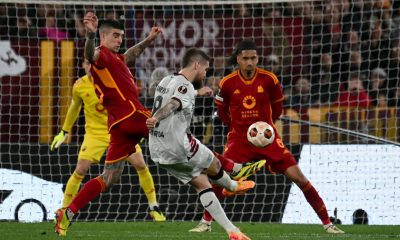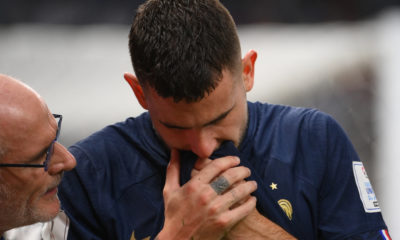
Huge crowds bade a grief-filled adieu Thursday to Argentina’s favourite son Diego Maradona before he was buried on the outskirts of the capital after a farewell that at times descended into chaos.
As darkness fell, the football legend was laid to rest after a ceremony attended by family and close friends in the leafy surrounds of the Bella Vista cemetery outside Buenos Aires.
One of the greatest footballers of all time, the World Cup winner died on Wednesday aged 60, sparking mourning around the world.
“I thought Diego was immortal, I thought he would never die on us. I feel a terrible sadness for a person who made us so, so happy,” said 63-year-old bus driver Antonio Avila outside the cemetery.
The peaceful farewell at the cemetery contrasted sharply with the sometimes raucous scenes of his send-off in Buenos Aires that seemed somehow in keeping with the player’s tumultuous life.
There, riot police fired tear gas and rubber bullets in clashes with stone-throwing fans that briefly threatened to mar a day of mourning for a beloved hero.
Thousands bid farewell
Tens of thousands of people had queued from early morning to file past the star’s coffin, draped in the Argentine flag and the player’s No.10 jersey, at the presidential palace.
But as the day wore on, fans queuing outside the palace grew increasingly impatient, and some took over a courtyard inside, where they chanted slogans, forcing officials to move Maradona’s coffin to another room as a security precaution.
Despite an earlier announcement extending the lying-in-state by several hours, officials shut the doors, and riot police clashed with stone-throwing fans on streets around the palace, arresting several people.
Later, the hearse bearing Maradona’s flag-draped coffin rolled through the gates of the presidency building and into the streets of Buenos Aires.
Fans crowded onto roadsides and highway bridges as the funeral cortege sped towards the western outskirts, surrounded by police outriders with sirens blaring.
Dozens of photographers and cameramen followed close behind on motorcycles.
Outrageous skill
The outrageously skillful Maradona, widely remembered for his “Hand of God” goal against England in the 1986 World Cup quarter-finals, died of a heart attack while recovering from brain surgery.
“He was the best in the world, we’re going to miss him and his death broke our souls,” said Diego Armando Cabral, a 29-year-old bricklayer in Buenos Aires who was named after the footballer.
Tributes poured in from around the world following the star’s death.
His career and life were sometimes tainted by a loose interpretation of the rules of the game and a crippling addiction to cocaine and alcohol.
Lionel Messi, Argentina’s modern-day superstar, led the tributes as he said: “He has left us but he will never leave us because Diego is eternal.”
Brazilian legend Pele, 80, constantly compared with Maradona in the debate over football’s greatest player, said he hoped they would one day “play together in the sky.”
‘Hand of God’
Maradona, born into poverty in Lanus, just south of Buenos Aires, on October 30, 1960, also played for Argentine clubs Argentinos Juniors and Boca Juniors, as well as Spanish giants Barcelona before becoming a hero in the working-class southern Italian city of Naples.
In his most infamous match, he leapt and used his fist to score past England goalkeeper Peter Shilton in the 1986 World Cup quarter-finals in Mexico City, unseen by the referee. Maradona memorably described the goal as “a little with the head of Maradona and a little with the hand of God.”
Nevertheless, just minutes after that goal, the diminutive Maradona weaved through six English defenders from the halfway line to score an unforgettable solo second that has been honored as FIFA’s “Goal of the Century.”
The two contrasting goals perfectly encapsulated the mixture of brilliant skill and often outlandish behavior that ran through Maradona’s life.
His career was crowned by his performances at that World Cup, when he captained Argentina to glory.
Maradona also inspired Argentina to the 1990 final, only for West Germany to take their revenge. At the 1994 World Cup, he failed a doping test and was sent home from the United States in disgrace.
Maradona’s lifestyle took a heavy toll on his health. He was hospitalized three times in the last 20 years for serious health issues.
‘Ciao Diego’
His extraordinary talent was evident from a young age, and after starring for Boca Juniors, he was transferred to Barcelona. After a turbulent time in Spain, a then-world record transfer to Naples came to define his club career.
Maradona enchanted an entire city by leading the then-unfashionable Napoli to their only two Italian league titles in 1987 and 1990, befriending a mafia family along the way.
In Naples, heartbroken fans gathered at the Stadio San Paolo stadium to lay candles, scarves and shirts, creating a makeshift shrine to their hero.
“He was our Sunday warrior,” Fernando Carfora, 46, said. “Maradona didn’t play with his feet, he played with his head. Nobody scored Maradona’s goals.”
Maradona’s playing career went into swift decline after leaving Napoli under a cloud in 1991 following another failed drug test.
As a coach, he led Argentina to the 2010 World Cup before spells with clubs in the United Arab Emirates, Mexico and his home country again—the last at Gimnasia y Esgrima La Plata—but he could never hit the heights of his playing days.
Maradona married his long-time girlfriend Claudia Villafane in 1984. They had two daughters, Dalma and Gianinna, but the relationship was punctuated by Maradona’s extra-marital affairs, and they divorced in 2004.
He also had a son, Diego Junior, born in Naples in 1986, although he only acknowledged paternity in 2004.

World Cup News
-
FIFA World Cup
/ 7 days agoSaudi oil giant Aramco agrees major FIFA sponsorship deal
Saudi Arabia’s state oil giant Aramco and world football governing body FIFA on Thursday...
By AFP -
FIFA World Cup
/ 1 month agoSon scores but Thailand hold South Korea in World Cup qualifier
Son Heung-min scored but South Korea were held 1-1 at home by Thailand in...
By AFP -
FIFA World Cup
/ 2 months agoJapan-N. Korea World Cup game to stay in Pyongyang, JFA says
Japan’s World Cup qualifier against North Korea will be played in Pyongyang as planned...
By AFP -
FIFA World Cup
/ 2 months agoGerman ex-FA bosses on trial over World Cup tax evasion
Three German ex-top football officials went on trial on Monday in a 13.7-million-euro ($14.8...
By AFP

English Premier League
Watch: Chelsea shatter Spurs’ top four bid

Football
Reims boss Still leaves Ligue 1 club

English Premier League
Ten Hag heaps praise on exiled Sancho after Champions League star turn

English Premier League
Newcastle’s Tonali escapes with suspended ban for further betting breaches

Winter Olympics
Watch: Geisenberger wins sixth Olympic medal to tie luge record

